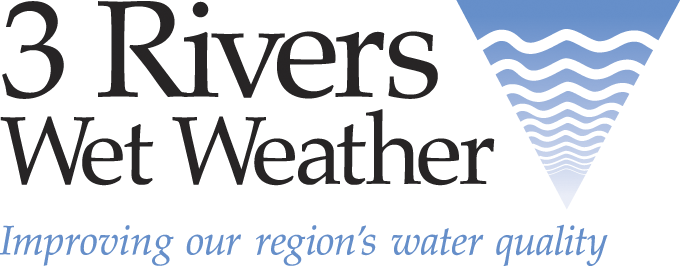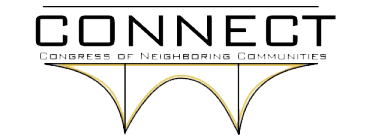

Sewer Regionalization Implementation Project
Background
On March 15, 2013, the ALCOSAN Sewer Regionalization Review Panel, chaired by Dr. Jared Cohon, then President and now President Emeritus of Carnegie Mellon University, and made up of ALCOSAN customer municipality representatives and subject matter experts, released a series of recommendations intended to:
(1) Enable collaboration between ALCOSAN and its 83 customer municipalities
(2) Improve the region’s service capacity and responsiveness by transferring ownership responsibilities of multi-municipal trunk lines to ALCOSAN;
(3) Expand ALCOSAN’s governance to better represent its customer municipalities; and,
(4) Promote more rational and sustainable approaches to waste/stormwater management.
The strategy to implement the Sewer Regionalization Review Panel’s recommendations is now underway. The Institute of Politics at the University of Pittsburgh has convened a committee, at the request of Allegheny County Executive Rich Fitzgerald and Pittsburgh Mayor Bill Peduto to present specific action steps to broaden the governance of ALCOSAN. Three Rivers Wet Weather (3RWW) and the Congress of Neighboring Communities (CONNECT) are partnering to staff and guide the Colcom Foundation funded Sewer Regionalization Implementation Committee, charged with developing a recommended process for adoption by the involved municipalities and authorities to transfer ownership of multi-municipal trunk lines to ALCOSAN.
The transfer of multimunicipal trunk lines from individual municipalities to ALCOSAN is a critical step in improving water quality in Allegheny County.
- Our region faces several federal consent decrees which mandate compliance with the Clean Water Act and the control of sewer overflows which contaminate our rivers.
- To comply with the consent decree, the 83 customer municipalities and ALCOSAN must undertake sewer upgrades that are financially unsustainable for most of the municipalities, individually.
- The most cost effective way for the region to meet the demands of federal, state and county administrative orders is for ALCOSAN to become the owner of the multimunicipal trunk lines and take responsibility for the multimunicipal trunk line capital projects contained in the municipal feasibility studies.
Transferring ownership of the multimunicipal trunk lines will achieve economies of scale, advance system integration, and increase consistency in meeting water quality standards.
- Transferring intermunicipal trunk lines to ALCOSAN to create a greater regional system is a crucial step towards achieving a sustainable solution to wastewater management and will be the largest multi-municipal transfer of public property our region has ever experienced.
- The majority of ALCOSAN’s customer municipalities are small with populations of 10,000 or less. Most municipalities do not have the financial or operational capacity to fund, build and maintain large multimunicipal trunk sewers.
- Right now, the multimunicipal trunk lines feeding the ALCOSAN conveyance and treatment system are more of a patchwork of pipes than a system. Every few miles the municipal ownership of the pipe changes, bringing differences in financial and operational capacity. The current network depends on every municipality, regardless of fiscal health, being able to maintain these multimunicipal pipes. If one fails, the network fails.
- The fragmented ownership of the multimunicipal trunk lines makes it difficult to achieve any economies of scale in construction, operation, maintenance or funding without a greater collaborative effort.
- Differences in the construction, operation and maintenance of the existing trunk lines make it difficult to manage and integrate the lines as a single system.
- The municipal owners of the trunk lines have different expectations and capacity for managing source reduction and flow into the ALCOSAN plant for treatment, making it difficult to meet water quality standards.
- Consolidation of the ownership and responsibility under ALCOSAN will allow the prioritization of projects.
- Consolidation will also allow ALCOSAN to evaluate the trunk sewer projects holistically in the final wet weather plan rather than as individual and uncoordinated efforts.
Municipal leadership is vitally important to the successful outcome of this effort.
- Municipal leaders in the 83 ALCOSAN customer municipalities, along with ALCOSAN, are the key decision makers in changing the way that multimunicipal trunk lines are funded, constructed, operated and maintained. Any change in the ownership of multimunicipal trunk lines must be approved by municipal councils and by the ALCOSAN Board of Directors.
- To address this financial issue and create a sustainable solution, municipal officials, regional stakeholders, 3 Rivers Wet Weather (3RWW) and the Congress of Neighboring Communities (CONNECT) have partnered with ALCOSAN to establish the Sewer Regionalization Implementation Committee (SRIC), chaired by Caren Glotfelty and Jim Turner to develop an implementation plan for multimunicipal trunk line transfer.
3RWW and CONNECT are uniquely situated to develop this process because they collaborated previously to develop the CONNECT Multijurisdictional Sewer Management Study in 2011. That study, which recommended that the multijurisdictional trunk sewers lines should be transferred to ALCOSAN, provides an important foundation for the SRIC work.


